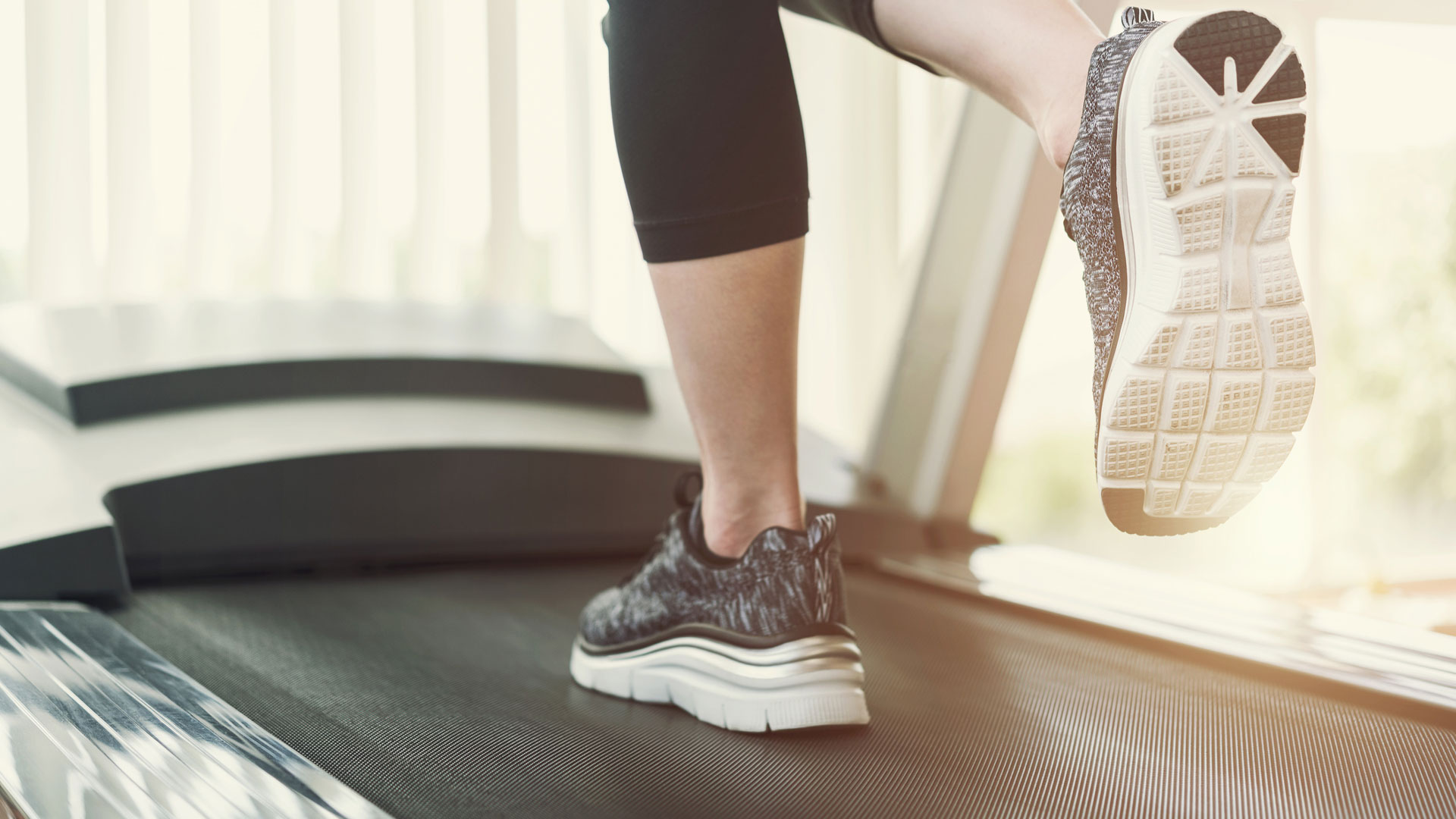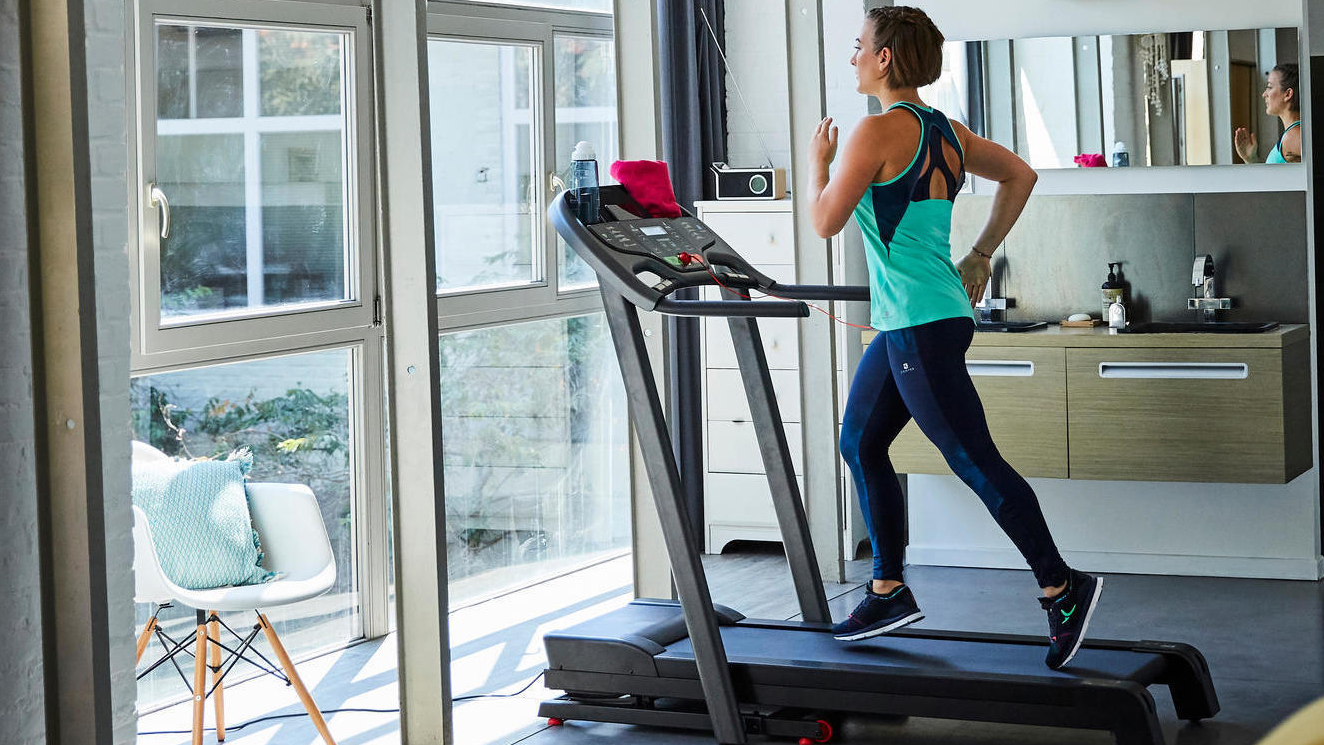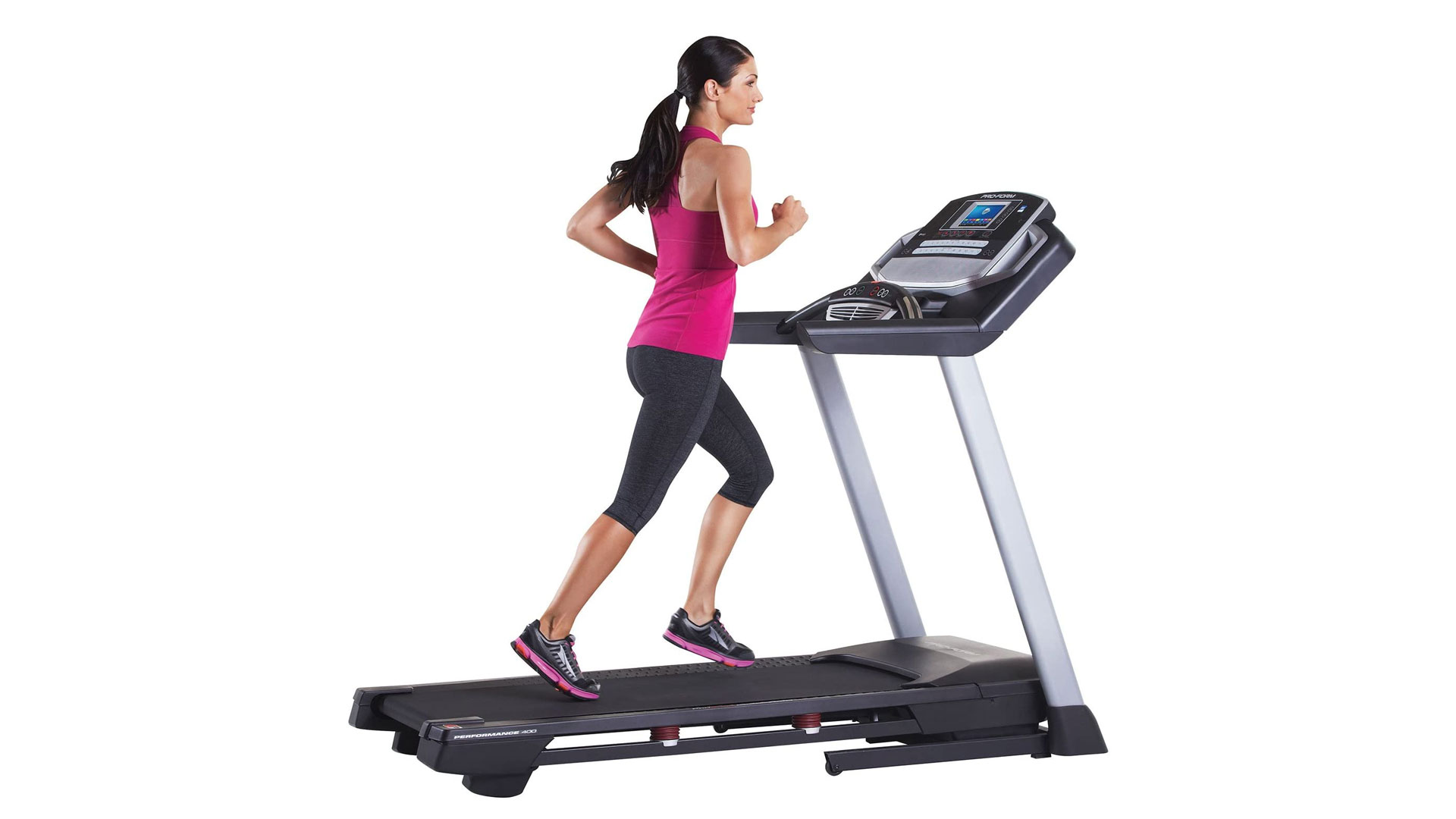Should you buy a portable treadmill? Here are the pros and cons of investing in one
Why should you buy a portable treadmill? Read on to discover the benefits of these handy exercise machines


Get all the latest news, reviews, deals and buying guides on gorgeous tech, home and active products from the T3 experts
You are now subscribed
Your newsletter sign-up was successful
With many workers stuck behind a desk, the answer to “why should you buy a portable treadmill?” could simply be an excuse to get a little more movement into their lives. Having a sedentary lifestyle is a huge problem for the world’s health today, with a recent WHO report naming physical inactivity as the fourth leading global risk factor for mortality, and five out of the top six risk factors can be improved by being more active.
Unfortunately, with more people working from home, it’s easier than ever to stay inactive during the day. To make matters worse, very few people have enough space for a full home gym setup, and it can be difficult to find time to get your gym bag ready, go to the gym, get a workout in, shower, and get back home.
This is where portable treadmills, such as the best cheap treadmills and best folding treadmills, come in! They’re designed to take up as little space as possible and are conveniently situated in your home so that all of the pesky travel time disappears.
Would you like to do more research about treadmills? Have a look at T3's best treadmill and best under desk treadmill guides for more info.
What is a portable treadmill?
With portable treadmills, there are two options: you can either go with an under desk treadmill or a folding treadmill. Under desk treadmills are designed to go under a desk (no surprises there), have no handles, and are simply the base and belt of a treadmill. This means they are easily stored, highly unobtrusive and quick to set up and put away.

Foldable treadmills, on the other hand, look just like a regular treadmill when they’re up and running, but can be folded for storage and are much more lightweight than traditional treadmills. They’re not quite as easy to move as under-desk treadmills but have their own advantages such as being able to produce higher speeds (compared to under desk treadmills) and having wider, longer running belts.
Many foldable treadmills are now as competent as their non-folding counterparts with brands like Bowflex, Echelon and ProForm leading the way. Don't believe us? Read our full ProForm Pro 2000 Treadmill and Echelon Stride reviews and see the features of these amazing folding treadmills yourself.
Get all the latest news, reviews, deals and buying guides on gorgeous tech, home and active products from the T3 experts
Why should you buy a portable treadmill?
The current US Physical Activity Guidelines recommend that adults get between 150 and 300 minutes per week of moderate-intensity exercise, i.e. anything that gets your heart beating faster.
However, a 2018 report by the Physical Activity Guidelines Advisory Committee estimated that only 20% of Americans meet that threshold, and a 2019 study in Frontiers in Public Health found that number to be less than 10%, and this inactivity is a major contributor to poor public health. How do we change that? Luckily, it doesn’t actually take much to make a difference.
Even taking an extra 2,000 steps per day (about 20 minutes of brisk walking) can reduce the risk of cardiovascular events by 10%, and cut the risk of blood sugar problems by 25% according to a 2011 paper in Diabetes Care. has shown notable health benefits in going up to 4,400 and 7,500 steps per day.
This shows that simply walking more can hugely improve physical and mental health. It’s all too easy to get caught up in the same pitfalls of not having time to go to the gym, not having space for a home gym, or not being able to afford enough equipment.

With a treadmill in your home, you can eliminate all of the travel time to and from a gym, and if you find yourself with even 15-20 minutes spare, you can jump on the belt and get an easy 1,500 steps in - they really add up! It’s also much easier to motivate yourself when the ‘gym’ is right there. You can even walk on a treadmill while on a call or typing away.
Under desk treadmills usually take up less than 10sq ft. when in use, under 1sq ft if stored upright, or you can slide it under a couch when you’re not using it because they’re often only half an inch high! Portable treadmills are also much less expensive than full-spec commercial treadmills that you’ll find in gyms, and while the cheapest ones are pretty basic, some of the more high-end products have classes live and on-demand, though often require additional membership.
What you should consider before buying a portable treadmill
There are, however, downsides to portable treadmills. Because they’re designed to be lightweight, they often have limited speed and incline options and smaller belt sizes. These issues are more notable with under-desk treadmills, which tend to have a maximum speed of around 6mph, often have no incline capabilities, and have much lower maximum user weight capacities of between 220-240lb. Although, that is the tradeoff for a lighter, more portable, less expensive treadmill.
Even folding treadmills can’t quite match gym treadmills with maximum speeds of ~12mph (commercial treadmills often go as high as 15mph), and weight capacities of between 220lb - 300lb, compared to a 300lb minimum for gym treadmills. It’s also worth noting that under desk treadmills have no handles, and folding treadmill handles are less sturdy as they’re made to move in order to fold.
Which treadmill is best for me?
If you’re looking for something small and inexpensive to simply increase your daily step count while multitasking, then an under desk treadmill is a great idea. If you would prefer something a bit more sturdy to do higher intensity running or even some sprints, with the option of exercises classes, then a pricier folding treadmill is probably better for you.
Below you'll find the best treadmill deals for today; don't miss out!

Will McAuley is a London-based Personal Trainer and Nutrition Coach who’s writing has appeared in Men’s Fitness and GQ magazine, covering exercise, nutrition and health. He has a Master’s degree in Strength & Conditioning from Middlesex University in London, is a published scientific author in the Journal of Strength and Conditioning Research, and holds a Bachelor’s degree in Linguistics from Trinity College Dublin.